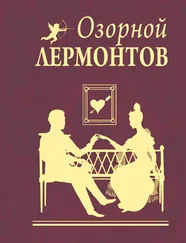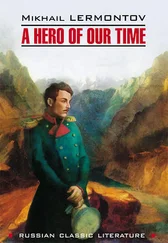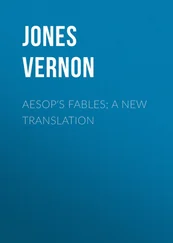Not long ago, several readers, and some journals even, succumbed to the misfortune of believing in the literal meanings of the words in this book. Some were awfully offended, in all seriousness, at the fact that they were presented with such an unprincipled person as the “hero of our time”; indeed, others very shrewdly observed that the author had painted his own portrait and the portraits of his acquaintances… That sorry, old ruse! But, apparently, Rus’ [1] Rus’: A term referring to an ancient people and their land, which are latterly represented by the Belarusian, Ukrainian, and Russian peoples and their territories.
is a creature in whom everything is constantly being renewed except nonsense such as this. The most magical of our magical fairy tales can barely escape the reproach that it is an attempt at insulting certain people!
A Hero of Our Time, my gracious sirs, is indeed a portrait, but not of one person: it is a portrait composed of the flaws of our whole generation in their fullest development. You will tell me that a person cannot be as nasty as this, but I’ll say to you that you have believed in the possible existences of every other tragic and romantic scoundrel, so why won’t you believe in the actuality of Pechorin? Since you have admired much more terrible and monstrous figments of imagination, why can’t you find mercy in yourselves for this character, just as a figment of imagination? Could it be that there is more truth to him, than you might like…?
Will you say that morality gains nothing from all of this? Forgive me. Enough people have been fed on sweets: their guts have rotted from them. What is needed is a bitter medicine, the pungent truth. But do not think now that the author of this book has had the proud impulse to remedy human flaws. God cure him of such audacity! It simply amused him to paint the contemporary person, one that he understands, and to his misfortune has come across too often.
I was traveling post from Tiflis. The entire load of my cart consisted of one valise of average size, half-filled with my travel notes about Georgia. The majority of these, luckily for you, were lost; but the valise with the rest of my things, luckily for me, remained intact.
The sun was just beginning to hide behind snowy peaks when I entered the Koyshaursky Valley. The Ossetian cart driver sang songs at full voice as he tirelessly urged the horses onward, so that we might succeed in climbing Koyshaursky Mountain before nightfall. What a glorious place, this valley! On every side there are unassailable mountains and reddish promontories, hung with green ivy and crowned with clumps of plane trees; there are yellow precipices, covered with the lines of gullies; and right up high: a gold fringe of snow. Below, the Aragva River, having gathered another nameless rivulet which noisily unearthed itself from a black and gloomy chasm, extends like a silver thread, glittering like a scaly snake.
We arrived at the foot of the Koyshaursky Mountain and stopped at a dukhan. [1] dukhan: An inn in the Caucasus.
Two dozen or so Georgians and other mountain dwellers were crowded noisily there. Nearby, a caravan of camels had stopped for a night’s shelter. I was supposed to hire some bullocks to drag my cart up this forsaken mountain, because it was autumn already, there was black ice, and this slope was about two versts [2] verst: An obsolete Russian measurement equal to about 3,500 feet.
in length.
There was nothing else to be done so I hired the six bullocks and a few Ossetians. One of them hoisted my valise onto his shoulders; the others started to prod the bullocks using their voices alone.
Behind my cart, another was being pulled by a foursome of bullocks as though it took no effort, even though it was full to the brim. This disparity surprised me. The owner walked behind his cart, smoking a little Kabardian pipe plated in silver. He wore an officer’s frock coat without epaulets and a shaggy Circassian hat. He seemed about fifty years old; the dark complexion of his face showed that it was long acquainted with the Transcaucasian sun, but the premature graying of his mustache didn’t correspond with his solid gait and bright appearance. I walked up to him and bowed; he silently returned the bow and pushed out an enormous cloud of smoke.
“It seems you and I will be traveling companions?”
He bowed again silently.
“Might you be going to Stavropol?”
“Yes, indeed… on official business.”
“Tell me, if you would, why is your heavy cart being pulled easily by four bullocks, when mine, which is empty, can barely be moved by six beasts with the help of these Ossetians?”
He smiled slyly and looked at me with emphasis.
“You have only recently arrived in the Caucasus, perhaps?”
“About a year ago,” I replied.
He smiled a second time.
“Well… what?”
“Yes! What awful rogues, these Asiatics! You think they’re urging those bullocks with what they’re saying? Devil knows what they’re crying out. The bulls, though, they understand them. You could yoke twenty to your cart even, and the bullocks still wouldn’t move as long as they cry out like that… Awful cheats! But what do you expect of them?… They love to make off with the money of passersby… the spoiled little swindlers! You’ll see, they have yet to ask you for vodka money. I know them, you see, and won’t have them lead me along!”
“And have you served here long?”
“I served here before under Alexei Petrovich,” he replied, assuming a dignified air. “When he arrived at the front I was a second lieutenant,” he added, “and under him I received two promotions for action against the mountain-dwellers.”
“And now, you are…?”
“Now I consider myself to be in the battalion of the third line. And you, might I be so bold as to ask…?”
I told him.
My conversation with the man ended, and we continued in silence one after the other. We found snow at the summit of the mountain. The sun set, and night followed day without interval, as is often the way in the south; but thanks to the tint of the snows we were easily able to make out the road, which continued up the mountain, though not as steeply as before. I gave orders to deposit my valise on the cart, exchange the bullocks for horses, and for the last time, I looked back down to see the valley. But a thick fog had covered it completely, having surged in waves up from the gorge, and not one sound from below could now fly up and reach our hearing. The Ossetians noisily clustered around me and requested something for vodka, but the staff captain shouted at them so menacingly that they ran off instantly.
“What a people!” he said. “They can’t even name the word for bread in Russian, but they’ve learned to say ‘Officer, give us something for our vodka!’ I think even the Tatars are a better sort—at least they don’t drink…”
One verst remained to the station. It was quiet all around us, so quiet that you could follow the flight of a mosquito by its buzzing. The deep gorge to our left was growing black; beyond it, the dark-blue summit of the mountain faced us, pitted with creases, covered in layers of snow, and silhouetted against a pale band of sky above the horizon, which was conserving the last reflection of the sunset. Stars began to sparkle in the dark sky, and strangely it seemed to me that they were a great deal higher than they are in the north. Bare, black rocks stuck out on both sides of the road; in some places shrubs peeped out from under the snow, but not one dry leaf stirred. It was cheering to hear the snorting of a tired troika [3] troika: A carriage drawn by three horses harnessed side by side.
and the uneven rattling of a small Russian bell in the midst of this dead dream of nature.
Читать дальше
Конец ознакомительного отрывка
Купить книгу
![Михаил Лермонтов A Hero of Our Time [New Translation] обложка книги](/books/27671/mihail-lermontov-a-hero-of-our-time-new-translati-cover.webp)










